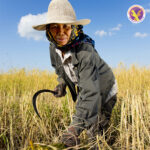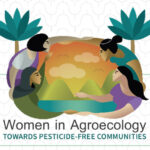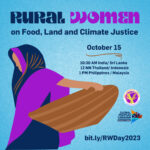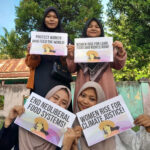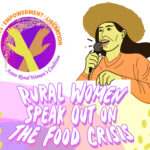Without addressing the realities of women, there can be no sustainable development, women from Asia Pacific reminded all states and participants in the Rio+20
Press Release by Asia Pacific Forum on Women, Law and Development (APWLD)
Women from Indonesia, Burma, Philippines and Thailand presented their realities and demands to realize sustainable development at the side event: Voices from Asia Pacific: Just and Sustainable Development Goals for Women,” co-organised by Asia Pacific Forum on Women, Law and Development (APWLD), Asian Rural Women’s Coalition (ARWC), and Asian Women’s Network on Gender and Development (AWNGAD) at Riocentro, Rio de Janeiro on the 15th June 2012.
Ms. Naung Latt from Kachin Women’s Association in Thailand (KWAT), Burma, presented the reality in Burma where the military still holds power in ethnic states denying people’s and particularly women’s access to natural resources. Ceasefires cannot bring peace until there is genuine political reform and justice for the ethnic peoples. “Women must have full and meaningful participation in all political process as leaders”, she emphasized.
Ms. Aliza Yuliana Syahrizal from Solidaritas Perempuan, Indonesia presented the vulnerability of women migrant domestic workers including violence, contract fraud, and lack of access to health services. Access to work – equal opportunity and condition; and control over their income with fair contract and non-discrimination must be ensured for women migrant workers. Aliza reiterated that countries both, sending and receiving, should ratify the International Convention on the Protection of the Rights All Migrant Workers and Member of Their Families (1990) and the ILO Convention No. 189 concerning Decent Work for Domestic Workers (2011).
Ms. Estrelita Mariano from Pesticide Action Network (PAN AP)/ Asian Rural Women’s Coalition (ARWC)/ AMIHAN, Philippines conveyed the demands of rural and indigenous women in Asia Pacific region who are subsistence farmers, fishers and other food producers. Women food producers have been contributing much to society but they are deprived of land and necessary productive resources. “Women must have ownership and control over land they till”, Lita said.
Ms. Anchalee Phonklien from Indigenous Women’s Network Thailand emphasized that indigenous women play an important role in maintaining and passing on to next generations their sustainable ways of life, art and philosophy: appropriate consumption and management of natural resources, community autonomy and peace, which must be fully recognized and supported. “Indigenous peoples” are not recognized in Thailand. “Indigenous women must have official space in policy making at national level, full and meaningful participation in natural resource management”, she said.
Tess Vistro from the Philippines, and focal person for APWLD’s programme on rural, indigenous women who has been following up the negotiations of the Rio+20 document, the Future We Want, provided and overview and analysis of the on-going negotiations and noted that the question of peace which is a common reality of women in the Asia Pacific is not addressed in the Rio+20 document. She stressed that if women have to live with threats and violence, and do not have peace in their local communities there can never be sustainable development for women and their communities.
The video: Our Rights! Our Voices! Our Resources!was launched at the event.
Contact: tomoko
riwwenpo@apwld.org
Programme Officer
Asia Pacific Forum on Women, Law and Development (APWLD)
189/3 Changklan Rd., A. Muang, Chiang Mai 50100
Thailand
Ph: +66 53 284 527 Skype: apwldsec
www.apwld.org
18 June 2012



